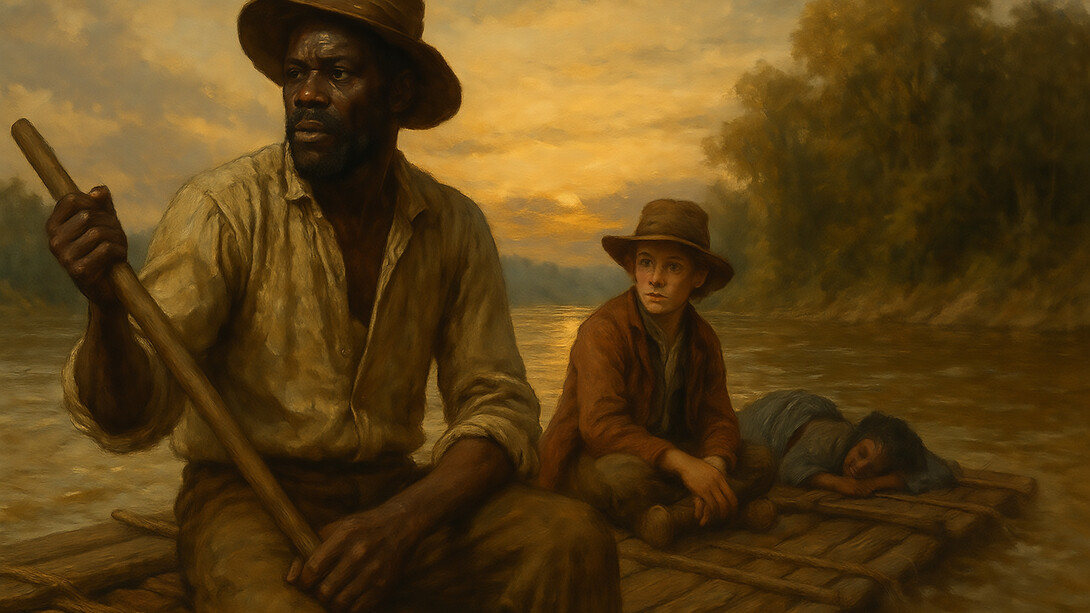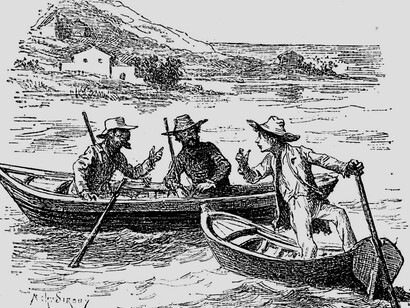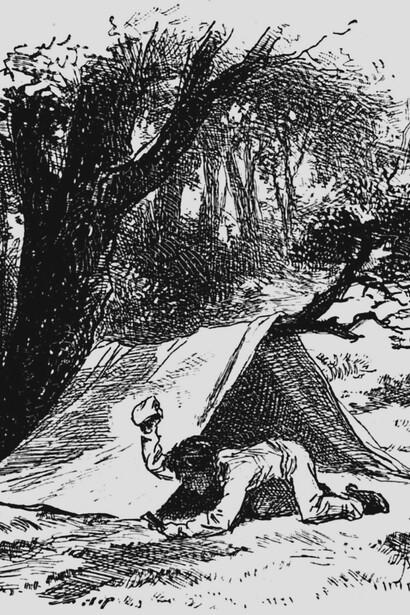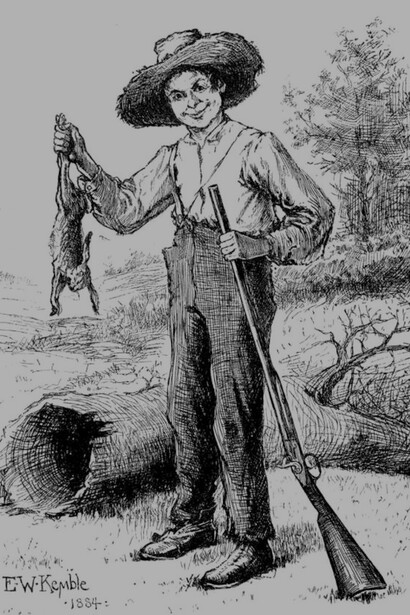Many of our modern novels draw from, or are influenced by, what has been written in the past. Percival Everett’s Pulitzer Prize-winning novel, James, retells Mark Twain’s Adventures of Huckleberry Finn from Jim’s point of view. This makes it less of a young boy’s adventure and more of a comment on the evils of slavery. Therefore, early in the book, Everett establishes Jim as a family man with a wife and daughter. Unlike Huck, he is rooted in the country and has responsibilities for other people.
Everett also establishes a contrast with the ‘superior’ white overseers. Jim’s owner makes some cornbread, which he takes home to his family, wanting to share this bounty with them. The irony is that his mistress has used his wife’s recipe, and she cannot cook. The bread is awful, to the point where the daughter asks ifshe has to eat it. Jim’s aim is not only to buy his own freedom but also that of his family. Even when he is beaten, he reminds himself that his goal is to free his family, as freedom is nothing without them. As a boy, Huck’s freedom is independence and adventure.
One of the main comments about Twain’s original is the language used, and this is something that is highlighted in Everett’s retelling. Jim deliberately speaks the colloquial language of a slave in front of white people. When he is alerted to Tom and Huck’s presence, his speech changes, and it becomes ‘a performance.’ When Jim instructs the Black children, he tells them, “White folks expect them” to speak in a certain way, and they will suffer if they make white folks feel inferior.
Another interesting challenge to assumptions is religion or a white God. Jim advises the children that there is no God. Religion tells of a reward in heaven, but he argues it says nothing about the punishment of white people. He states that religion is a form of control and a tool they employ when it is convenient. However, for performance purposes, when they are around white people, they believe. Easter, a slave, describes the world as horrible, but heaven will be better. However, if white people are there, he wants to make other arrangements.
As if to dispel the idea of ignorance and stupidity, Everett portrays Jim as being able to not only read but also write. He describes reading as an act of freedom and therefore subversion, as no one could know if Jim was seeing, reading, or comprehending the words. In a moment of delirium after being bitten by a snake, Everett even has him communicating with Voltaire on equality. Jim states natural liberties are derived from being human, whilst civil liberties are shaped by society and culture and depend on hierarchy and situation. In Twain’s novel, Huck sees Jim as human and follows his conscience rather than the culture of the South.
The Duke and the King, the two conmen featured in Twain’s original, exposed the nature of class and greed within the system. For Everett, they expose the cruelty of slave owners as the Duke beats Jim for running away, stating, “He ain’t no proper people. He doesn’t feel pain like we do.” This cruel treatment prompts a fellow slave named Easter to comment, “White folks don’t see like we do. They can’t, or they don’t want to.” This becomes the essence of slavery: either seeing or choosing to see other people as different.
The idea of seeing is illustrated by the minstrels who perform in blackface. They want Jim to sing with them, and because they perform in blackface, they can pass as white. When he performs in front of white people, they look at him differently. Equally, when he looks at white people, he finds them shallow with no substance. Assuming the role of a white man brings new emotions, expectations, and rights that would not be permitted in a slave. When a white man touches his hair out of curiosity, Jim reflects on the emotions he feels, both anxiety and anger. Anxiety at being exposed as a fraud and anger at being touched. That anger will again surface when he sees a Black woman being raped by her white owner. Jim also sees the hypocrisy of the troupe leader Emmett, who argues against owning slaves, yet he pays for and insists on a receipt for Jim, and requires him to sing as a way of recouping his investment.
When Jim returns home to look for his family, he finds they have been sold. He asks Huck to find out who they have been sold to and tells him to treat it as an adventure. This is not only a reminder that Huck is still a child but also of the fact that slaves cannot ask questions of white people. In common with Twain’s original, Jim hides on the island while he waits for Huck. Unfortunately, his newfound boldness and sense of justice led him to strangle Hopkins, the overseer whom he witnessed raping a slave. Ironically, this same white man could have told him where his wife and child had been sent.
After being united with his family, they make their way north to Iowa. When asked by the sheriff if he was a runaway, he said yes, but his name is James, reclaiming his true identity, not his slave name.















